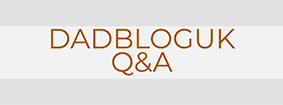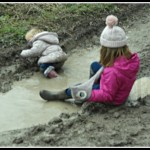One morning in late 2015, I found myself in a cafe. It was the day the Serious Crime Act came into force, a law that, other things, aims to protect people who find themselves in a damaging, coercive relationship.

On a neighbouring table was a large group of police officers having breakfast before going on duty. They were discussing this new law and trying to figure out how they would apply it or arrest people for falling foul of it.
They were more than a little concerned about how they would go about it. It was clear they felt it would be difficult to establish a relationship was coercive unless they actually saw damming evidence and that, they felt, was unlikely.
Jump forward to today. Out of the blue, I was contacted by Kate Ryan, a family solicitor at IBB. IBB had carried out some research into coercive relationships. The document is online and you can read it here. While the police officers had some legitimate concerns, the research clearly shows the need for such legal protection.
Kate made clear coercive relationships can happen to anyone. The research showed men and women are just as likely to experience being in a coercive relationship. However, it highlighted some interesting facts about how men can be affected by such relationships.
Guys are less likely to come forward and admit they are in a troubled relationship. It also seems men are more likely to experience being spied upon by a partner or have methods of communication removed from them (I stress, that women experience all these things and more, but the reluctance of men to come forward is a particular issue).
We explored these issues in greater detail in this Q&A. If it is an issue you feel affects you in some way, there is a link at the end to a pdf where you can get further information.
Can you please outline your role at IBB and why you have a particular interest in cases involving coercive relationships.
I am a partner in the family team at IBB. When advising clients, I feel it is essential to ensure that I am sensitive to their situation and ensure that along with offering them clear legal advice, I must also be conscious of their other needs, which are often psychological, medical or financial.
This also means listening properly to what clients tell me about the relationships and circumstances and being able to offer them appropriate support. Often client’s in abusive relationships do not realise the behaviour they have experienced over the years is damaging or abusive.
I feel it is part of my role to gently highlight that certain situations/relationships are harmful and that individuals should not have to accept the situation they are in and that with support they can change things for themselves for the better. Obviously, there are also clients who do appreciate the nature of their relationship and are desperate to extract themselves from a cycle of abuse.
In recent years I have seen a rise in cases involving coercive and controlling relationships. I feel this issue needs to be to be more widely addressed to ensure those professionals working with victims, those first on the scene of an incident or likely to find out about an abusive situation like the police, social services and solicitors, are adequately trained and experienced in dealing with these types of issues. This is especially important where there are children involved. Ensuring the right training is given will make a huge difference to victims and families experiencing this type of behaviour.
I guess most people are familiar with the concept of controlling relationships where there’s a threat of violence, but how do you define a coercive relationship?
A coercive relationship is commonly seen as a relationship where one party is either physically or verbally abusive towards the other. However, a coercive and controlling relationship is also one where one party attempts to limit the other’s financial resources, cuts them off from family members or friends.
This can extend to the couple’s own children (parental alienation). They may regularly put the other party down, bully them or makes negative comments about how they dress or what they look like.
IBB has done some research into coercive relationships and there were some particularly interesting findings relating to men. What were the highlights?
When asked about bullying behaviours, men were just as likely to experience most of the issues asked about. There are a few exceptions where men were more likely to experience the issue than women.
- Monitored or controlled spending, 29% of men V 22% of women.
- Suspected partner of spying on their activity, 30% of men V 23% of women
- Partner deprived you of or limited your food, 24% of men V 11% of women
- Partner intentionally destroyed possessions or deleted important emails or texts, 27% of men V 20% of women
- Partner hid or took away a phone, tablet or computer, experienced by 24% of men V 14% of women.
Amongst those who said they had experienced bullying or abusive behaviour, nearly half of men (48%) said they did nothing about it, significantly higher than the figure for women (33%). By contrast, women were much more likely to say they had ended the relationship (37%) compared with only 1 in 6 (16%) of men experiencing issues.
Why do you think men are less likely to acknowledge they are in a coercive relationship and take steps to leave one?
I feel that males are often not comfortable with talking about their relationships or their feelings. This means that any abusive behaviour may go undetected for longer as those close to the victim may not know anything is wrong.
As a result, I think males may supress any feelings around this issue and are therefore more likely to put up with a bad relationship for longer. In addition, there is definitely still a stigma for males who may feel they are perceived as weak if they are subject to controlling or abusive relationship from the opposite sex.
What should someone, male or female, do if they feel they are in a coercive relationship? Is legal aid available to anyone needing legal support to leave a relationship under these circumstances?
As part of our report looking at Coercive and controlling behaviours, Psychotherapist Naveen Webber (more info here) highlighted the red-flags that can indicate that someone is in a coercive or controlling relationship. There’s a very long list but highlights include:
- You fear your partner
- Your partner threatens to abandon you, withholds love, affection, sex or financial support or threatens to self-harm if you were to leave the relationship
- Your partner preys on your vulnerabilities, such as financial insecurities or a desperate need for attention and praise
- You feel you cannot do anything right to please your partner and start to feel guilty, anxious or depressed
- Your self-confidence and self-esteem is eroded over time to the point you do not trust your own mind and feel you deserve to be mistreated
- The abuse may occur in a repetitive cycle with periods of building tension, aggression or violence, reconciliation and calm.
Chronic relational aggressions can be so traumatising that they can lead to serious and long-lasting mental health problems. This is why it is essential to seek help.
You asked about legal aid. Legal aid is available in some circumstances where there is domestic abuse and they income falls below a certain amount.
Finally, can you outline what different it makes if children are involved?
If children are involved because their parents are in an unhealthy relationship, where one parent is experiencing abusive or coercive behaviour, then unless the situation is resolved the children’s safety and welfare will be at risk and a Local Authority may intervene. This would often result in legal aid support being available.
Further information
Further information can be found online on the IBB website. If you follow this link, you will find a list of organisations that help people experiencing domestic violence and coercive relationships.








2 thoughts on “Coercive relationships and the law: Q&A with family law specialist Kate Ryan”
Great that you are highlighting this issue. I have several friends who have been in this situation (thankfully not any more). Posts like this feel like you’re giving them a voice they haven’t had before.
Thanks tara. Unfortunately I too can think of people I know who are, or have been, in coercive and controlling relationships. Sadly, it is very common. If just one person finds this post useful I’ll be very happy.